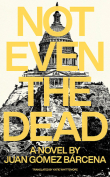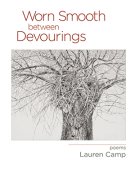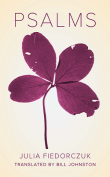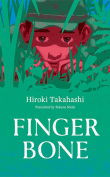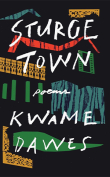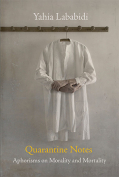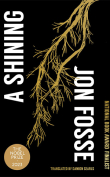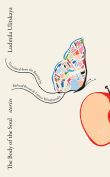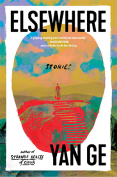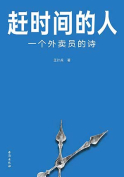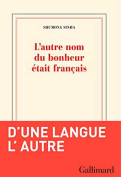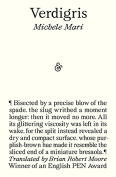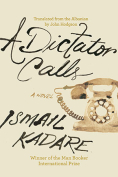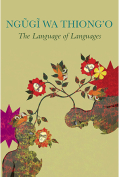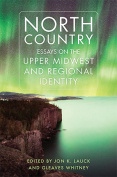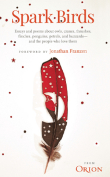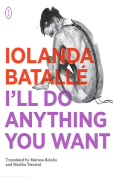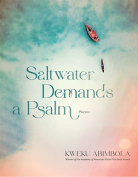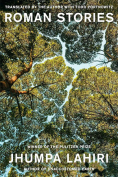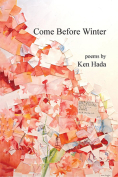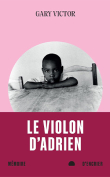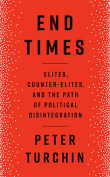Saltwater Demands a Psalm: Poems by Kweku Abimbola
 Minneapolis. Graywolf Press. 2023. 96 pages.
Minneapolis. Graywolf Press. 2023. 96 pages.
Saltwater Demands a Psalm is the song at a child’s naming ceremony, the elegy at their death, and the soundtrack that marks important parts of their life, like when they receive the silver aviation wings. It is the gbese that rolls off a dancer’s hips and the lines that represent the journey so far, the braided hair at a Brooklyn hair store. Everything is a psalm, and saltwater demands psalms to keep its people anchored. The book’s archaeological nature allows it to resurface and remix Ghanaian cosmology and contemporary culture for the modern reader.
Kweku Abimbola’s debut poetry collection is a robust collage of forty poems that pays homage to symbolic parts of the Black experience. The book is divided in multiple sections stitched together by Andikra symbols that show intertextual modes of expression. As is the case with any important cultural artifact, the scope of the book cannot be fully covered in one review. The poem uses intertextuality, motifs, rhythms of Black life, and pictographs with proverbial meaning—Adinkra—to create a cultural artifact that preserves the stories of Akan names because they are poetic units of culture that hold heritage and culture.
The book is divided into five sections separated by Adinkra symbols. Each section is preoccupied with a unit of Black life. The poet values all diverse forms of expression such as music, hair, dance, and drawing, and language is at the center of each mode of expression. There is no expression without language, and as custodians of language, poets are modern griots.
At the height of the Black Lives Matter protests, the chant “Say Their Names” was echoed across the country to humanize the bodies and dreams wasted by gun violence. As a poet and custodian of language, the author writes psalms for the hundreds of bodies murdered across the Atlantic Ocean to guide them on their ancestral journeys across the seas. One of such people is Trayvon Benjamin Martin, renamed Trayvon Benjamin Akwasi Martin according to the Akan system of naming: “I name him Akwasi / whom you call Trayvon.” The poem “Kwasiada” explores what life would have looked like if Trayvon received his degree in aviation from FMU instead of the posthumous one he received. Trayvon’s original and Akan names along with many other victims of gun violence are inscribed in the outline of a Sankofa bird at the end of the poem. The bird represents a need to reflect on the past and build a better future. The image of the Sankofa bird is repeated several times throughout the book to “Say the Names” of other Black bodies lost to gun violence.
Trayvon Benjamin Martin, Sandra Annette Bland, Tarika Kaye Wilson, Charleena Chavon Lyles, Tamir Elijah Rice, Micheal Brown Jr, Freddie Carlos “Pepper” Gray, Emantic Fitzgerald Bradford Jr becomes Trayvon Benjamin Akwasi Martin, Sandra Annette Ama Bland, Tarika Kaye Afua Wilson, Charleena Chavon Yaa Lyles, Tamir Elijah Kwabena Rice, Micheal Kojo Brown Jr, Freddie Carlos Kweku “Pepper” Gray, Emantic Kweku Fitzgerald Bradford Jr respectively.
The second poem in the book, “History of My Day,” is a recurring motif. It appears multiple times set in a different place and time. The poem explores how the author’s naming ceremony on the eighth day of the week, according to Ghana’s Akan tradition, marks their true birth. Subsequent poems show the evolution of the name and its impact on life. Names are used to tell the story of a body. The author calls it “Bodyglyphics”: “How many letters / can the body shape?” Language is used to draw the contours of the body, and names are little poems resting on each of us. The readers engage with the intellectual and philosophical nature of the text through visceral language that transports them to each time and place where the events are happening. The audience participates in the ceremony of naming and leaves with a deeper affection for the ways names preserve our stories.
Dance and music are psalms that communicate Black joy. They are the circles at the cookout where a beat is transformed when it enters a Black body. Words roll off the contours of Black bodies as sound becomes movement and breathes new life into a song. Black joy is preserved in the community as people congregate to remind the body of its fluidity and powers of communication. Every dance, facial expression, and contour of the body is a psalm that communicates more than words ever could. A psalm is prayer and praise; it is solemn and rejoicing; and, most importantly, it is communication. Saltwater demands a psalm unless the fishermen are lost at sea.
Delight Chinenye Ejiaka
Las Vegas, Nevada


